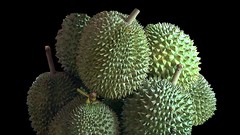Successful Ayurvedic Herbal Treatment For Hyperhidrosis

- Sweaty Palms Site
Successful Ayurvedic Herbal Treatment for Hyperhidrosis By Abdulmubeen Mundewadi
Hyperhidrosis refers to excessive perspiration especially from the palms, soles, and armpits. Some individuals have excessive sweating on the head and forehead. Though this medical condition is benign, it can cause social embarrassment, depression, and long-term disability in performing some professional work like writing or handling papers and documents. Hormonal disorders, diabetes, obesity, and stress can aggravate this condition. High temperatures can aggravate sweating; however, paradoxically, many people with hyperhidrosis report an aggravation in the winter season.
The modern treatment of hyperhidrosis consists of the local use of antiperspirants, oral anticholinergic medicines, iontophoresis (passing a mild current across the hands), injection of botulinum toxin, surgical denervation of affected areas, radiofrequency ablation, surgical removal of affected parts, and subcutaneous liposuction. The major concerns with these treatments are limited improvement; repeated sittings for treatment; considerable treatment cost; serious or troublesome side effects, and recurrence of symptoms.
Excessive sweating is believed to be due to an overactive sympathetic and parasympathetic (both collectively known as the autonomic) nervous system. In Ayurvedic pathophysiology, it is believed that a dysfunction of the ‘Meda’ (fat) tissue is responsible for this condition. Sweat is believed to be a waste product of the Meda tissue. Faulty Meda metabolism results in the quality of the tissue becoming compromised; this causes excessive production of waste material, thereby causing excessive sweating.
The primary treatment of hyperhidrosis, therefore, is to normalize the Meda metabolism. Medicines which act on the Meda tissue are given in high doses or as per the severity of hyperhidrosis. Some of these herbs can also be used to rub locally on affected body parts. Medicines which correct the overactive autonomic nervous system can also be used effectively to treat this condition. It is also beneficial to treat stress, obesity, diabetes mellitus and other conditions directly or indirectly aggravating sweating. Hyperthyroidism is a hormonal disorder where excessive sweating may be a symptom of the condition; treating the primary disorder will automatically reduce or cure, all related symptoms including hyperhidrosis.
It is important to note that complete cessation of sweating is not desirable, since sweating regulates body temperature, maintains fluid balance, and keeps the skin and sweat pores soft. Depending upon the severity of the condition and the response of individuals to treatment, affected patients may require Ayurvedic treatment for periods ranging from three to six months, or sometimes more. Once the symptoms have subsided significantly, the patient can then be treated with reduced doses of previously used medicines or other Ayurvedic medicines to prevent a relapse of the condition.
As discussed above, modern treatment has limited benefit, requires multiple sittings, and can have serious side effects. On the contrary, Ayurvedic treatment is safe for long-term use, and significant relief can be obtained on a very long-term basis. In addition to reduction of excessive sweating, most individuals who take Ayurvedic treatment for this condition also report feelings of improved relaxation, increased confidence, and better control while handling stressful situations. These benefits, along with reduced sweating, are reported several months to even several years after stopping treatment. Ayurvedic treatment therefore appears to be a better treatment modality in the management of hyperhidrosis.
Dr. A. A. Mundewadi is Chief Ayurvedic Physician at Mundewadi Ayurvedic Clinic based at Thane, Maharashtra, India. He is available as an online Ayurvedic Consultant at http://www.ayurvedaphysician.com
The online clinic offers Ayurvedic treatment for all chronic and refractory health problems. Dr. A. A. Mundewadi, B.A.M.S., has clinical experience of over 33 years and clinical research experience of 20 years. He has conducted extensive research in HIV infection, Schizophrenia and many other chronic diseases.
Contact information is as follows: mundewadiayurvedicclinic@yahoo.com; info@ayurvedaphysician.com; +91-0-8108358858; +91-0-9967928418;
